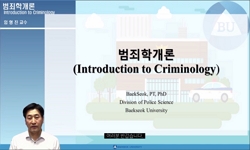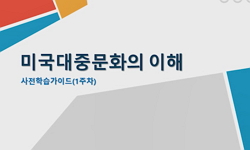Cultural and gender differences of Korean students were tested in this paper. Korean Self-esteem Scale developed by Cha, Hong, Kim, & Han, 2006) and Multiple Self-esteem Indicator((MSEI) proposed by E. J. B'Brien & S. Epstein(1988) was employed to tes...
http://chineseinput.net/에서 pinyin(병음)방식으로 중국어를 변환할 수 있습니다.
변환된 중국어를 복사하여 사용하시면 됩니다.
- 中文 을 입력하시려면 zhongwen을 입력하시고 space를누르시면됩니다.
- 北京 을 입력하시려면 beijing을 입력하시고 space를 누르시면 됩니다.

대학생들의 자존감 구성요인에 있어서 문화적, 성차의 효과 = Cultural and gender differences of Korean students' self-esteem
한글로보기부가정보
다국어 초록 (Multilingual Abstract)
Cultural and gender differences of Korean students were tested in this paper. Korean Self-esteem Scale developed by Cha, Hong, Kim, & Han, 2006) and Multiple Self-esteem Indicator((MSEI) proposed by E. J. B'Brien & S. Epstein(1988) was employed to test the commonalities and differences in both gender of Korean students in study 1. Nine factors were emerged among Korean students through factor analyses: Ability, acknowledgement, self-confidence, appearance, volition, morality, body, and liking. On the other hand, 11 factors of self-esteem were identified among American students: Appearance, body function, personal power, moral self-approval, identity-integration, ability, defensive self-improvement, general self-esteem, self-control, loveability, likability. Hence, appearances, morality, ability, volition, and likability were common while approval from others of Korean and personal power and defensive self-improvement of American were distinguished between two cultures, which can be interpreted as a characteristic patterns of Korean and American as collectivism and individualism. And there was gender difference between Korean males and females on the factor components, which is a significant validation of this scale. Interdependent and independent aspects of both gender's components of self-esteem were tested in study 2. There was a significant gender gap in the independent dimension of self-esteem, but no difference was showed in the interdependent dimension. Korean male students were far more independent compared to Korean female students. Also, no gap in collective interdependence and relational interdependence, which are two sub-components of interdependence expected different in both gender, was shown between Korean male and female students. Suggestions and limitations centered on differences in interdependent dimension between both gender were discussed.
참고문헌 (Reference)
1 차경호, "한국성인 자존감 구성요인 탐색 및 척도개발" (1) : 105-139, 2006
2 Kitayama, S., "they saw a game. A Japanese and American (football) field study" 34 : 581-595, 2003
3 Marcus, H., "gender and thought: The role of the self-concept ; Gender and thought" Springer- Verlag 100-127, 1988
4 Brewer, M. B., "Who is this "we"? Level of collective identity and self representations" 71 : 83-93, 1996
5 Baumeister, R. F., "What do men want?: Gender differences and two spheres of belongingness: Comment on Cross and Madson (1997)" 122 : 33-44, 1997
6 Turner, J. C., "The social identity perspective in intergroup relations: Theories, themes, and controversies ; Intergroup relations: Essential readings" psychology Press 2000
7 Triandis, H. C., "The self and social behavior in differing cultural contexts" 96 : 506-520, 1989
8 Cross, S. E., "The relational interdependent self-contsrual and relationships" 78 : 791-808, 1999
9 O'Brien, E. J., "The multidimensional self-esteem inventory" Psychological Association Resources 1988
10 Singelis,T.M, "The measurement of independent and interdependent self- construals" 20 : 580-591, 1994
1 차경호, "한국성인 자존감 구성요인 탐색 및 척도개발" (1) : 105-139, 2006
2 Kitayama, S., "they saw a game. A Japanese and American (football) field study" 34 : 581-595, 2003
3 Marcus, H., "gender and thought: The role of the self-concept ; Gender and thought" Springer- Verlag 100-127, 1988
4 Brewer, M. B., "Who is this "we"? Level of collective identity and self representations" 71 : 83-93, 1996
5 Baumeister, R. F., "What do men want?: Gender differences and two spheres of belongingness: Comment on Cross and Madson (1997)" 122 : 33-44, 1997
6 Turner, J. C., "The social identity perspective in intergroup relations: Theories, themes, and controversies ; Intergroup relations: Essential readings" psychology Press 2000
7 Triandis, H. C., "The self and social behavior in differing cultural contexts" 96 : 506-520, 1989
8 Cross, S. E., "The relational interdependent self-contsrual and relationships" 78 : 791-808, 1999
9 O'Brien, E. J., "The multidimensional self-esteem inventory" Psychological Association Resources 1988
10 Singelis,T.M, "The measurement of independent and interdependent self- construals" 20 : 580-591, 1994
11 Heine, S. J., "The cultural construction of self-enhancement. An examination of group-serving biases" 72 : 1268-1283, 1997
12 Houston, D. M., "Tests of both corollaries of social identity theory's self-esteem hypothesis in real group settings" 42 : 357-370, 2003
13 Brealwell,G.M, "Some effects on marginal social identity ; Differentiation Between Social Groups" Academic Press 1978
14 Mistry, R., "Social isolation predicts re-hospitalization in a group of older American veterans enrolled in the UPBEAT Program" 16 : 950-959, 2001
15 Hogg, M. A., "Social identifications: A social psychology of intergroup relations and group processes" Routledge 1988
16 Huajian, C., "Self-esteem and culture: Difference in cognitive self-evaluations or affective self-regard?" 10 (10): 162-170, 2007
17 Gecas, V., "Self and identity ; Sociological perspectives on social psychology" Basic Books 41-67, 1995
18 Cross, S. E., "Models of the self: Self-construals and gender" 122 : 5-37, 1997
19 Williams, J, E., "Measuring sex-stereotypes: A thirty nation study" Sage 1990
20 Kitayama, S., "Individual and collective processes in the construction of self: Self enhancement in the United States and self-criticism in Japan" 72 : 1245-1267, 1997
21 Josephs, R. A., "Gender and self-esteem" 63 : 391-402, 1992
22 Markus, H. R., "Culture and the self: Implications for cognition, emoton, and motivation" 98 : 224-253, 1991
23 Wood, W., "Conformity to sex-typed norms, affect, and the self-concept" 73 : 523-536, 1997
24 Seeley, E. A., "Circle of friends or members of a group?: Sex-differences in relational and collective attachment to groups" 6 : 251-264, 2003
25 Gabriel, S., "Are there “his” and “hers” types of interdependence?: The implications of gender differences in collective versus relational interdependence for affect, behavior, and cognition" 77 : 642-655, 1999
동일학술지(권/호) 다른 논문
-
한국판 부모 양육스트레스 검사-축약형(Korean versionof Parenting Stress Index-Short Form:K-PSI-SF)의 신뢰도 및 타당도 연구
- 한국여성심리학회
- 이경숙
- 2008
- KCI등재
-
- 한국여성심리학회
- 권호인
- 2008
- KCI등재
-
중산층 양육조모와 비양육 조모의 양육스트레스 및 정신건강 실태조사
- 한국여성심리학회
- 이지연
- 2008
- KCI등재
-
- 한국여성심리학회
- 김범준
- 2008
- KCI등재
분석정보
인용정보 인용지수 설명보기
학술지 이력
| 연월일 | 이력구분 | 이력상세 | 등재구분 |
|---|---|---|---|
| 2024 | 평가예정 | 계속평가 신청대상 (계속평가) | |
| 2022-01-01 | 평가 | 등재후보학술지 선정 (신규평가) |  |
| 2019-12-01 | 평가 | 등재후보 탈락 (계속평가) | |
| 2018-12-01 | 평가 | 등재후보로 하락 (계속평가) |  |
| 2015-01-01 | 평가 | 등재학술지 유지 (등재유지) |  |
| 2011-01-01 | 평가 | 등재학술지 유지 (등재유지) |  |
| 2009-01-01 | 평가 | 등재학술지 유지 (등재유지) |  |
| 2006-01-01 | 평가 | 등재학술지 선정 (등재후보2차) |  |
| 2005-01-01 | 평가 | 등재후보 1차 PASS (등재후보1차) |  |
| 2003-01-01 | 평가 | 등재후보학술지 선정 (신규평가) |  |
학술지 인용정보
| 기준연도 | WOS-KCI 통합IF(2년) | KCIF(2년) | KCIF(3년) |
|---|---|---|---|
| 2016 | 1.59 | 1.59 | 1.81 |
| KCIF(4년) | KCIF(5년) | 중심성지수(3년) | 즉시성지수 |
| 1.73 | 1.74 | 2.599 | 0.19 |




 KCI
KCI






